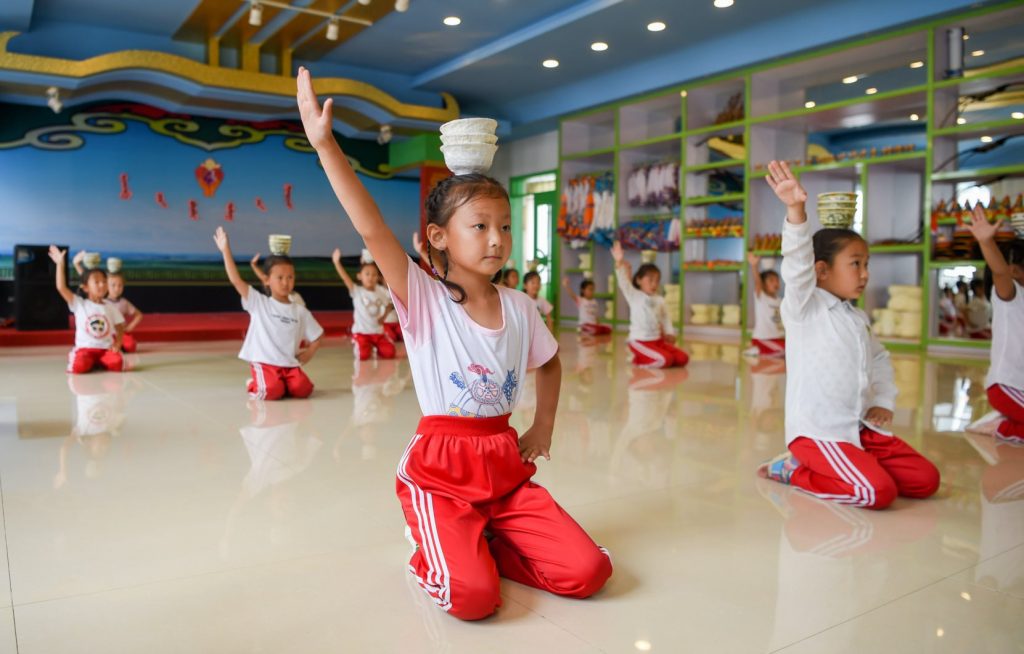Nothing is permanent, so everything is precious. Here’s a selection of some happenings—fleeting or otherwise—in the Buddhist world this week.
Inner Mongolians Protest Chinese Language Policy in Schools
Ethnic Mongolians in northern China are protesting against new measures that reduce Mongolian-language teaching in local schools. The BBC reported that under the new rules from the Chinese government, the subjects of politics, history, and language and literature in China’s Inner Mongolia autonomous region will gradually transition to being taught in Mandarin Chinese, China’s official language. Many parents have refused to enroll their children in school in protest against the policy, which they believe is a threat to their cultural identity. Staff at a school in the region of Naiman county told the BBC that only around 40 students had registered for the semester—the number of students, typically, is one thousand. Chairman of the exiled Inner Mongolian People’s Party Temtsiltu Shobtsood told the BBC that China is “trying to suppress” the Mongolian language. “The whole world is talking about human rights, but we are not visible enough,” he said, adding that the imposition of Mandarin and the majority Han Chinese culture on Inner Mongolia was a form of “cultural genocide.”
We went to Inner Mongolia this week and found incredible courage – Mongol parents, teachers, students, even police fighting for their own language – but also sweeping security crackdown, w targets as young as middle school. Please read @latimes https://t.co/tsJfIH6VJM
— Alice Su (@aliceysu) September 3, 2020
Rubin Museum of Art Set to Reopen Sept. 12
The Rubin Museum of Art in New York City plans to reopen on September 12. The Himalayan art museum will maintain its regular hours, including free admission from 6:00–10:00 p.m. on Fridays. Visitors must sign up in advance for timed entry tickets and will be required to wear a mask and follow other COVID-19 protocols. A new installation, The Lotus Effect, will be on display, exhibiting folded lotuses submitted by the public as symbols of gratitude and compassion. In a press release, executive director Jorrit Britschgi said, “After being closed for almost 180 days, having an actual reopening date is like finally seeing light at the end of the tunnel.”
The Buddhist Significance of September’s Full Moon
This week’s full moon, which fell close to the fall equinox when day and night hours are nearly equal everywhere on Earth, is significant in many cultures, including Buddhist ones, according to the Science Times. In Bangladesh, Cambodia, India, Myanmar, Sri Lanka, and Thailand, this moon marks the Honey-offering Festival, which celebrates the story of when animals brought food to the Buddha to help him survive when he was isolated in the wilderness. In Sri Lanka, this moon also marks Binara Pura Pasalosvaka Poya day, the day the bhikkhuni order of Buddhist nuns was first established.
China’s President Calls for “Sinicization” of Tibetan Buddhism
Xi Jinping, China’s president and the general secretary of the Communist Party of China (CPC) Central Committee, issued a firm call for the “sinicization” of Tibetan Buddhism in Tibet, according to the Economic Times. In an address last weekend at a government symposium on Tibet, Xi said that Tibetan Buddhism needed to adapt to China’s socialist society and that it was necessary for the Chinese government to “promote the sinicization of Tibetan Buddhism.” The proposed sinicization would include measures to expand the CPC’s political and ideological education programs in Tibetan schools, which Xi said is meant to “plant the seeds of loving China in the depths of the hearts of every youth,” Al Jazeera reported. The two-day Central Symposium on Tibet Work coincided with the 55th anniversary of the founding of the Tibet Autonomous Region (TAR) on September 1, 1965. While the CPC has ruled Tibet for decades, the region’s culture is still deeply Buddhist—and His Holiness the 14th Dalai Lama remains a spiritual touchstone, despite his exile in India since 1959.
Thank you for subscribing to Tricycle! As a nonprofit, we depend on readers like you to keep Buddhist teachings and practices widely available.
